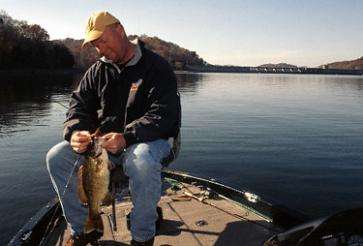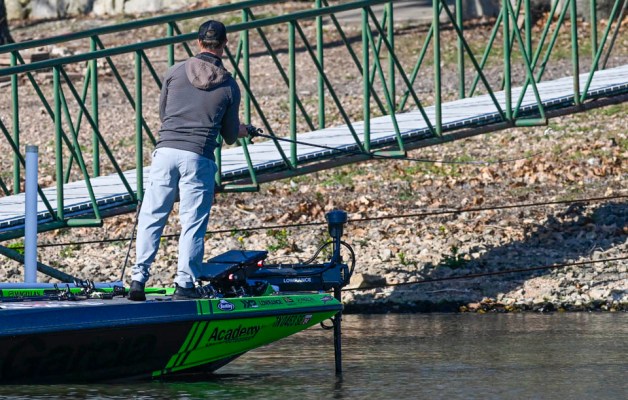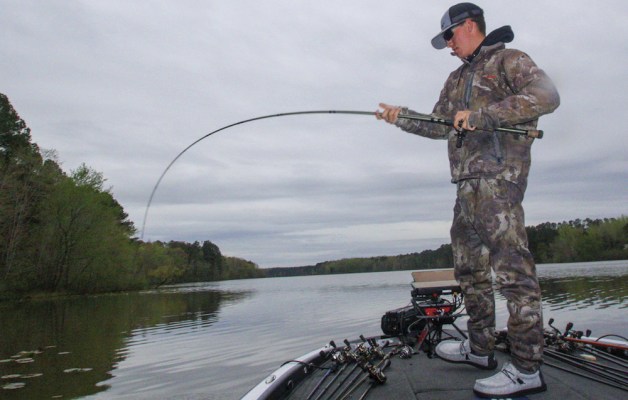
One of the greatest things about my weekly column here on Bassmaster.com is the e-mails I get from other smallmouth bass fanatics. One of the best came just the other day from John Whyte, a north-of-the-border brown bass chaser who loves to fish jigs for smallies on Canadian waters.
John fishes a lot of tournaments and says he uses jigs about 75 percent of the time even though other baits might cover more water or seem like the more logical choice. He’s wondering if he’s getting into a rut with them and whether he should spend more of his fishing time using other baits.
John, I’m with you, man! I know exactly what you mean about jigs and the tendency to use them when other baits might work better. The truth of the matter, for me at least, is that when I’m fishing a jig for smallmouth, I have tremendous confidence in my fishing and that confidence is critical to my success.
I don’t get to fish as many tournaments as I used to, but I can tell you that I never started a competition day without at least one rod on the deck that was rigged up with a jig of some kind. The jig is just too effective and too versatile to ever leave it out of your smallmouth arsenal, and, while it might not always be best the tool for the job, it’s almost always a good one.
The drawback of jig fishing is that it can be slow. You don’t generally get to cover a lot of water when you’re jig fishing, and the bass don’t often want the bait moving very quickly when you present it to them. For that reason, a lot of guys will go to crankbaits, jerkbaits and spinnerbaits in an effort to catch the really aggressive fish out there.
And there’s nothing wrong with that. In fact, I do it all the time. As much as I love the jig, my very favorite smallmouth lure is whatever I caught my last bass on — jig, crankbait, spinnerbait, blade bait, whatever! I just know that the jig is probably the best all-around smallmouth lure ever devised, so I make sure I always have a bunch of them with me.
The other thing I want to tell you about my jig fishing is that I don’t always fish them slowly. I sometimes use a jig to cover lots of water, and it works really well. Let me explain.
If you know the smallmouth are holding at around 25 feet on main lake points with pea gravel, you’re wasting your time fishing in the backs of creeks. I think everyone would agree with that.
But you’re also wasting your time fishing 15 feet deep … or 35 feet deep … or on main lake points with chunk rock. It’s the truth and you know it, but I’ll bet you do some of those things and fish some of those places even though you know you’re not likely to get bit there.
When I know the fish are on main lake points with pea gravel in 25 feet of water, that’s what I fish … and I’m usually using a jig. And I say that I’m fishing fast because I pull up to a point, step up to the bow of my boat, grab my jig rod and fire out a cast before I’ve dropped the electric motor. I let the bait get to the bottom, work it slowly and carefully through the productive depth range four or five times and, if I haven’t gotten a bite, I’m on my way to the next point.
Way too many anglers will work that same point from the shallows all the way out until it drops into the river channel. They’ll catch some fish, but they’ll waste more time. While they fish one point, I’ve fished five or 10 and caught lots more fish.
So you can fish fast but do it slowly. BASS superstar Kevin VanDam does the same thing and has talked about it often. You can do it, too.
And you’ll catch more bass.
So, John, don’t give up on the jig, just use it to its greatest advantage.
By the way, I just might take you up on that invitation to fish Ontario with you. I can’t say I agree that it’ll produce the next world record (after all, I live on Dale Hollow), but I know you’ve got some awfully nice smallmouth up there.
Until next time, if you have any questions or comments, I’d love to hear from you. Please e-mail me atStephen@thesmallmouthguru.com.





